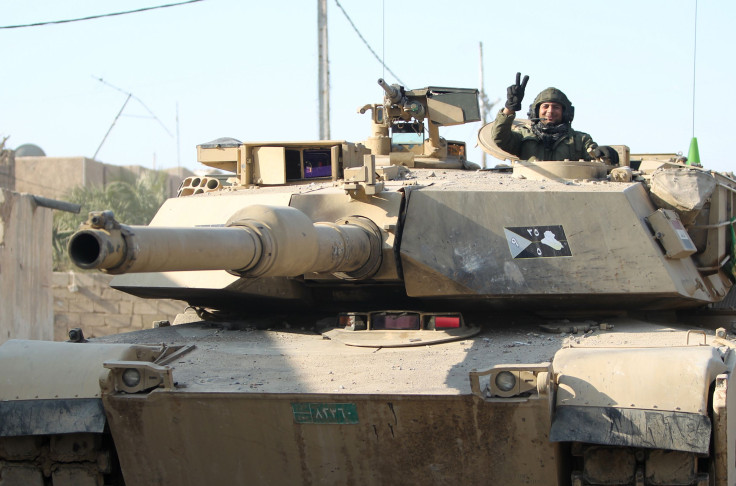After Ramadi Battle, ISIS On A Killing Spree? Reports Of Islamic State Group Massacres Following Losses In Iraq

After losing its grip on the Iraq city of Ramadi to the Iraqi military, Islamic State group militants have reportedly carried out a string of executions and revenge attacks across the country. Northwest of Mosul, Iraq’s second-largest city, a mass grave of some 120 bodies was discovered, and in a nearby district, dozens of civilians were reportedly executed, according to Al Bawaba, a Jordanian news site.
In the same district, fighters with the extremist group, also known as ISIS, reportedly killed some 30 fighters who had fled the battlefield in Ramadi. In addition to several other reported executions, a religious leader was killed in western Mosul for refusing to pledge allegiance to the militants. Al Bawaba referred to the killings as a "revenge killing spree."
Iraqi Forces Retake Key City of Ramadi From Islamic State https://t.co/ovyVRXDRdZ
— Chuck Larson (@chucklarson1) December 28, 2015
The reports — which could not be independently verified by International Business Times — came just a day after the Iraqi military declared Ramadi liberated from ISIS control. Fighting continued in pockets of the city through Tuesday; a convoy carrying Iraqi Prime Minister Haider al-Abadi came under rocket fire during a visit to the city and was forced to evacuate the area, Rudaw reported. No casualties were reported.
The victory in Ramadi, the capital of the Anbar Province, is considered both a strategic and symbolic victory, possibly laying the groundwork for future operations against ISIS. Abadi vowed in the aftermath of the recapture of Ramadi to soon liberate Mosul, which fell to ISIS fighters last year.
ISIS has seen significant setbacks in recent months. As well as losing territory, a U.S.-led airstrike campaign against ISIS has killed some 23,000, U.S. Army Gen. Lloyd Austin said, according to various reports. The group continues to maintain control over large swaths of Iraq and Syria; much of a recent anti-ISIS military campaign has sought to cut off the group’s sources of revenue. The group is believed to have been financially struggling in recent months, particularly as airstrikes have targeted ISIS' oil infrastructure.
Iraq's state TV says Prime Minister Haider al-Abadi arrives in Ramadi to hail the city's liberation from ISIS: https://t.co/38jbBD4HYk
— The Associated Press (@AP) December 29, 2015
In areas under its control, ISIS is accused of setting up harsh legal systems where executions and other forms of corporal punishment are commonplace. The terrorist organization has frequently killed individuals opposed to its rule, including members of other Sunni rebel groups fighting on the ground in Syria.
© Copyright IBTimes 2024. All rights reserved.












